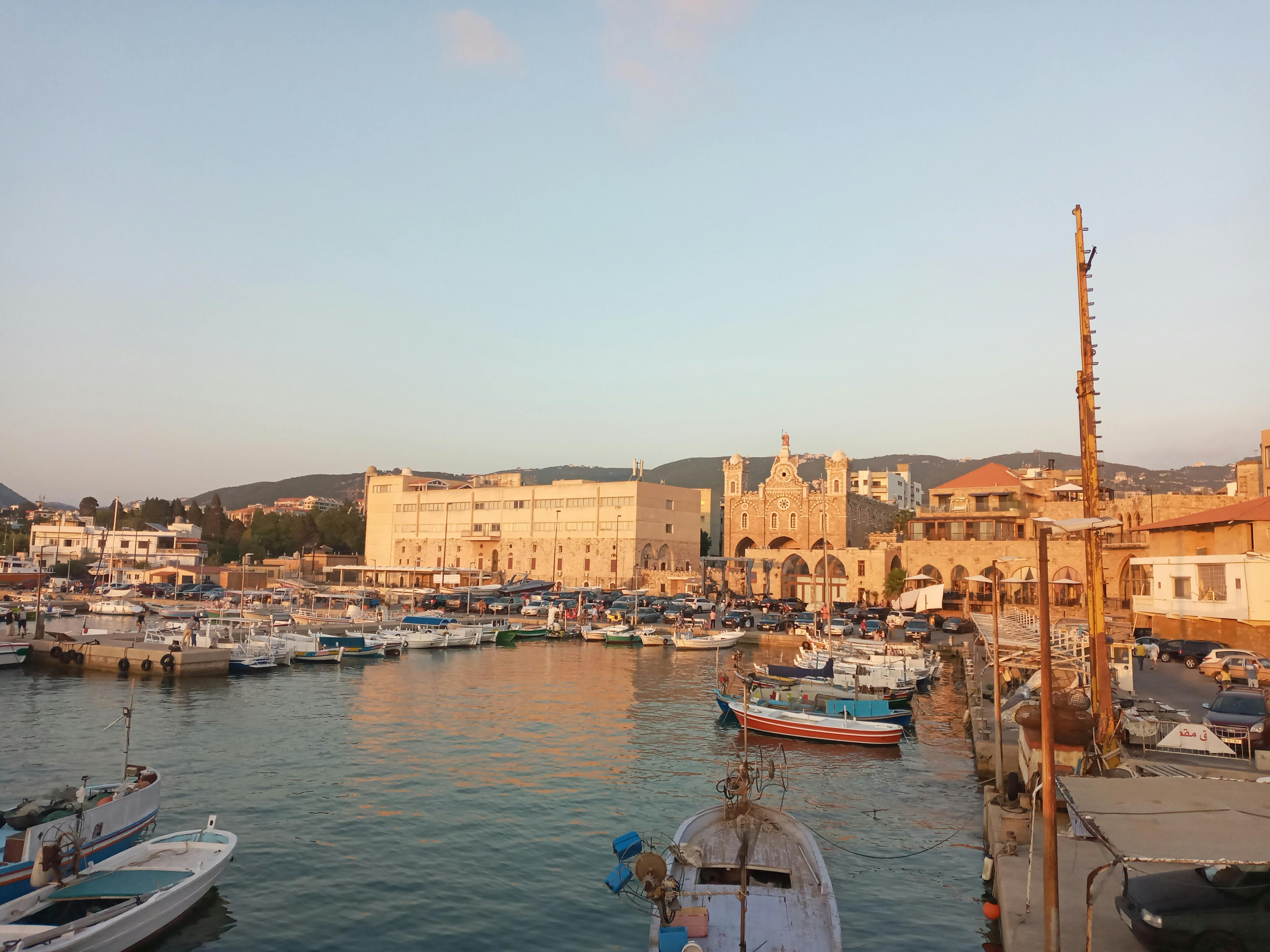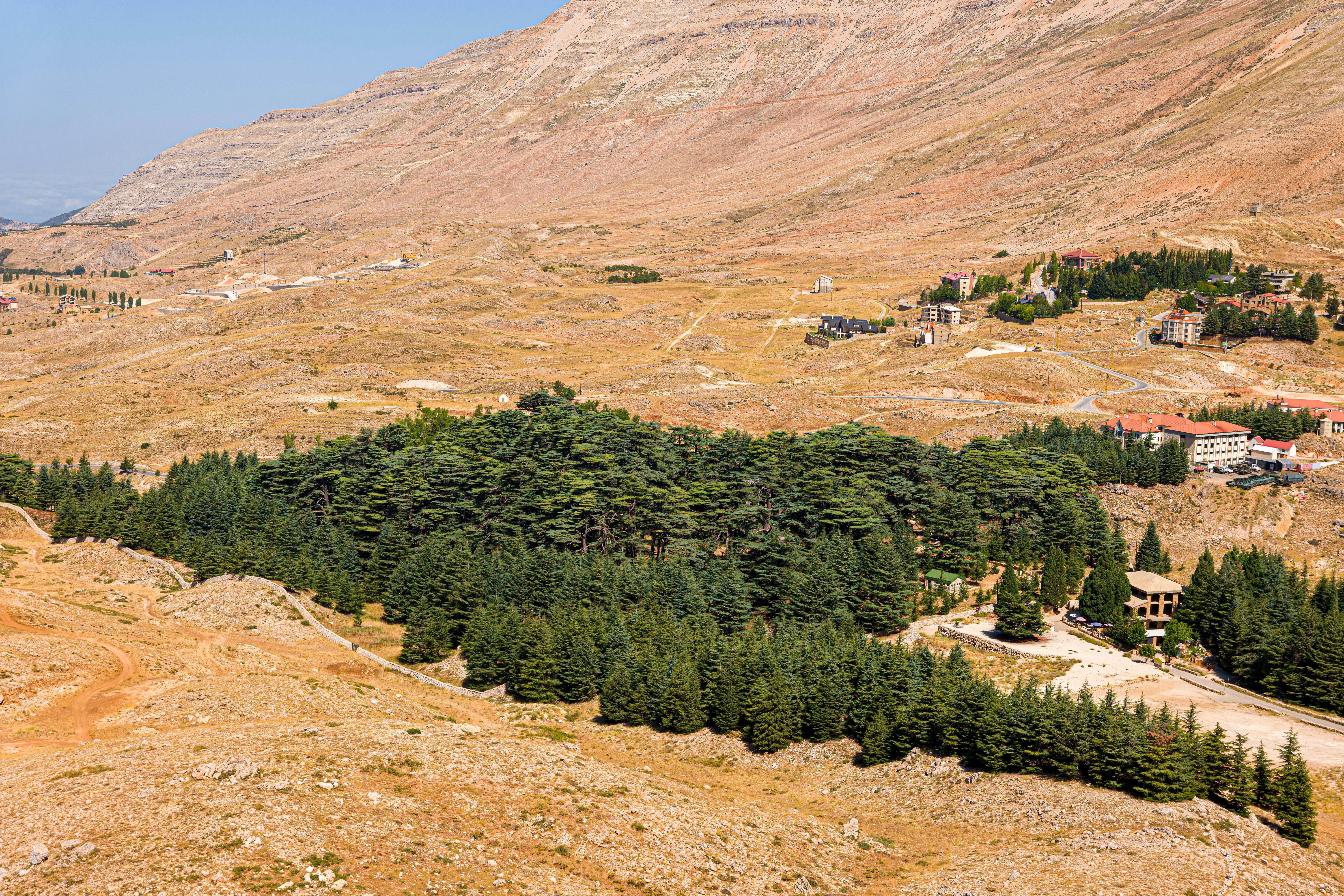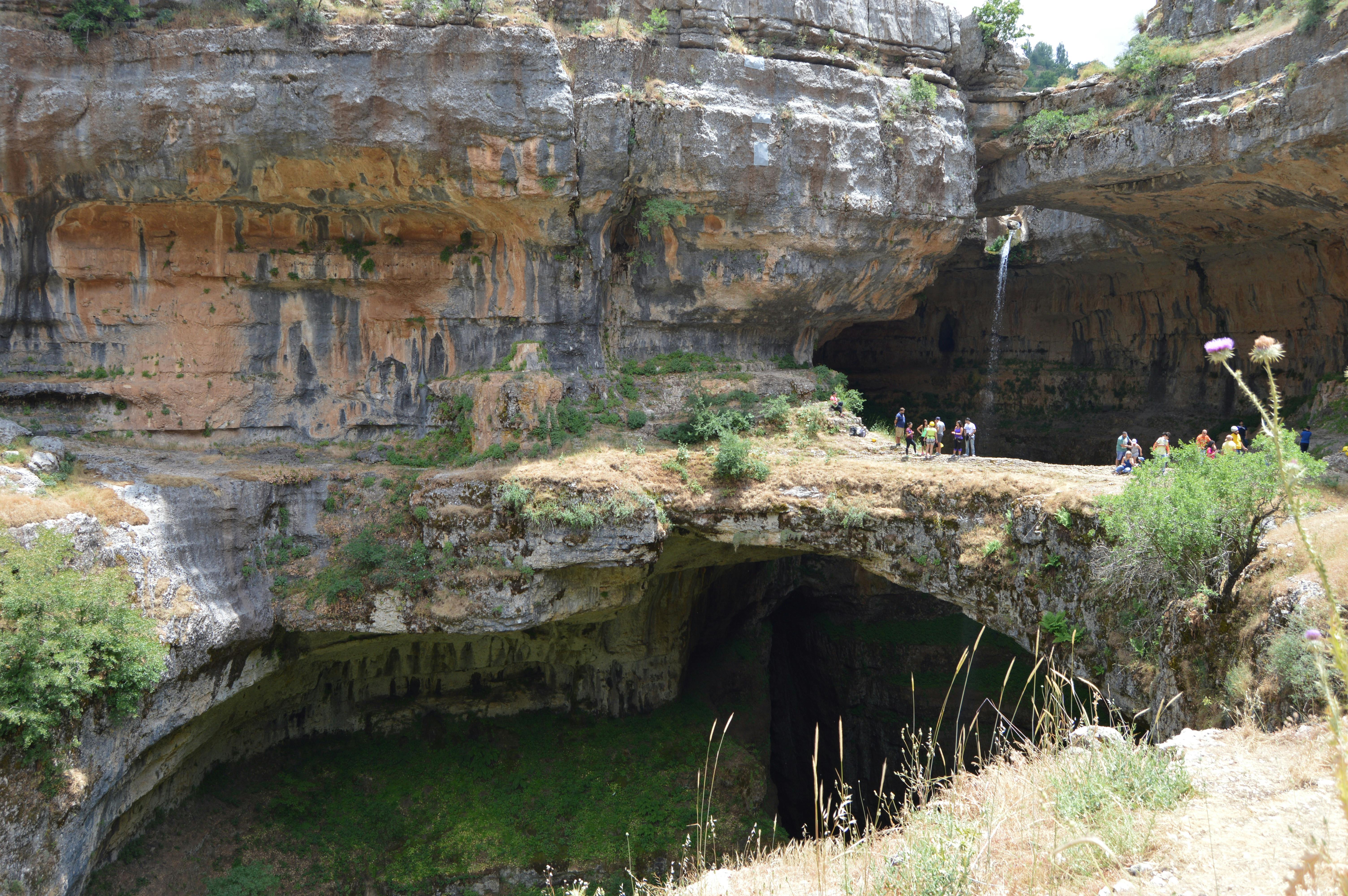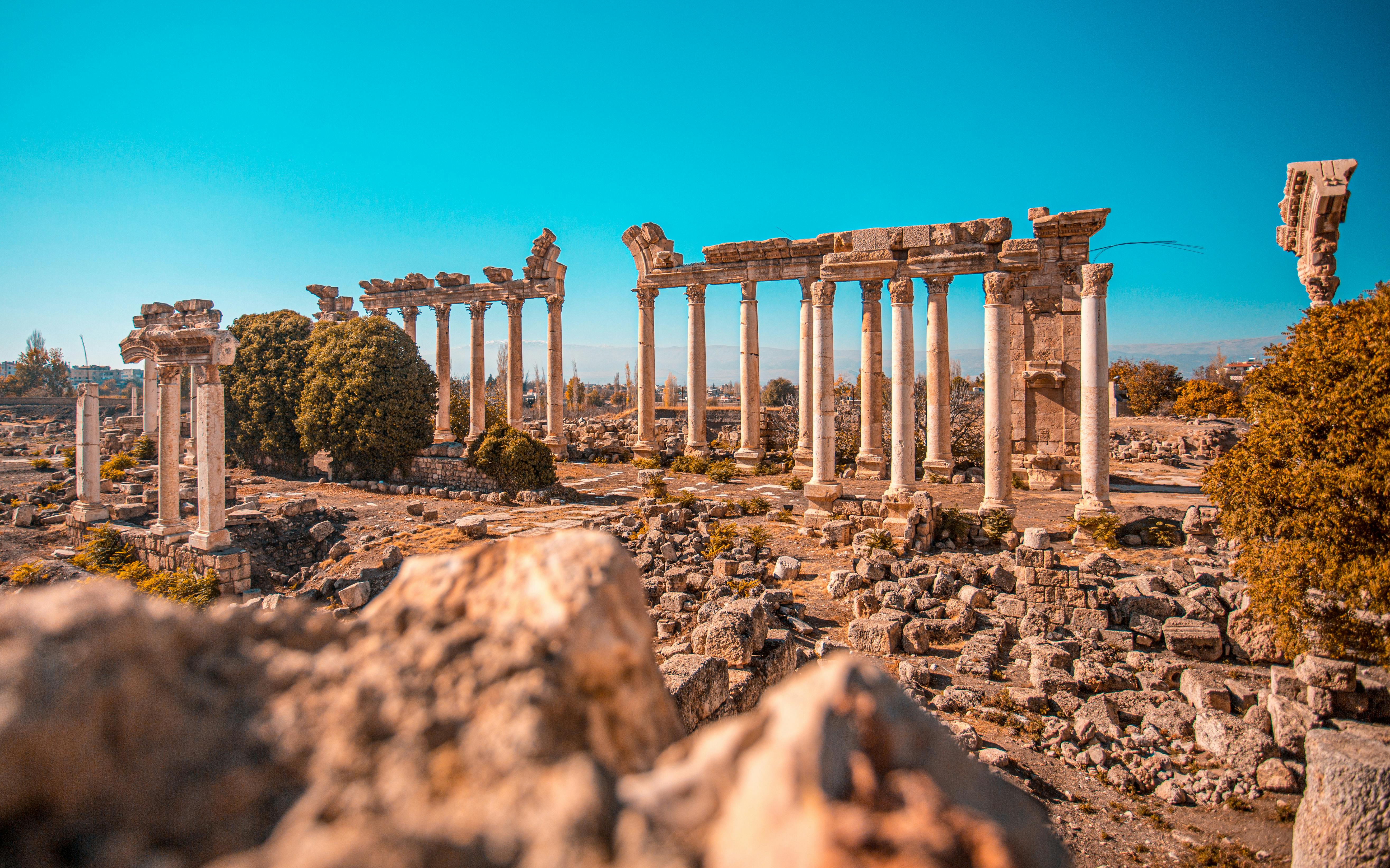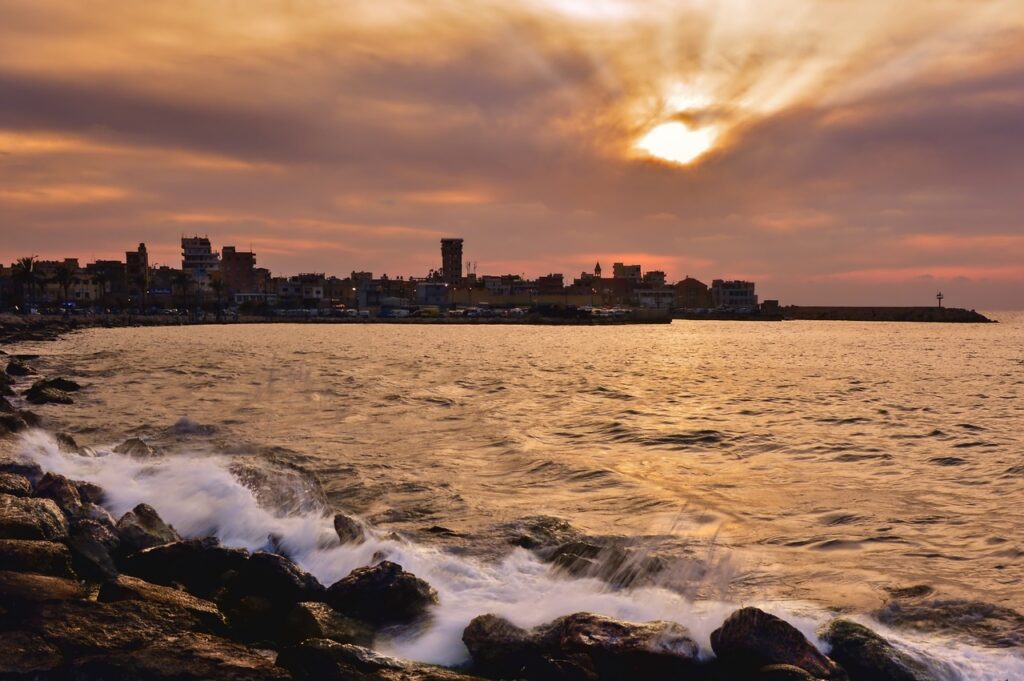Smack in the eastern Mediterranean, Lebanon is a treasure cove of ancient history, pulsating culture, and beautiful landscapes. From the trendy streets of Beirut to the towering ruins of Baalbek, this Middle Eastern country is truly a backpacker’s dream, ripe for exploration. But what do you do if you are on an extremely tight budget? Can you still have the ultimate Lebanon experience without breaking the bank?
It seems that Lebanon has a secret-one that invites adventurers from all over the world-and that secret happens to include its nightlife scene, considered one of the best in the world. Most importantly, Beirut is known for pulsating bars and clubs, beach parties that go until the wee hours of the morning. Picture this: dancing till daylight among locals and travelers with the grand Mediterranean Sea and Mount Lebanon. Whether you are a party animal or just looking for the taste of the high life, Lebanon’s nightlife will render you breathless.
Well, in this blog, we take you down the uncharted paths of Lebanon: find budget-friendly accommodations, mouth-watering street food, and off-the-beaten-path attractions that do not hurt your wallet. From the scenic hikes in Qadisha Valley to haggling over souvenirs in the vibrating markets of Beirut, from morning sunlight until well past sunset, we show you how one can make the best of Lebanon’s deep heritage, great landscapes, and unforgettable nightlife on a broke budget. Join us as we delve into the adventures and misadventures of broke backpacking in Lebanon.
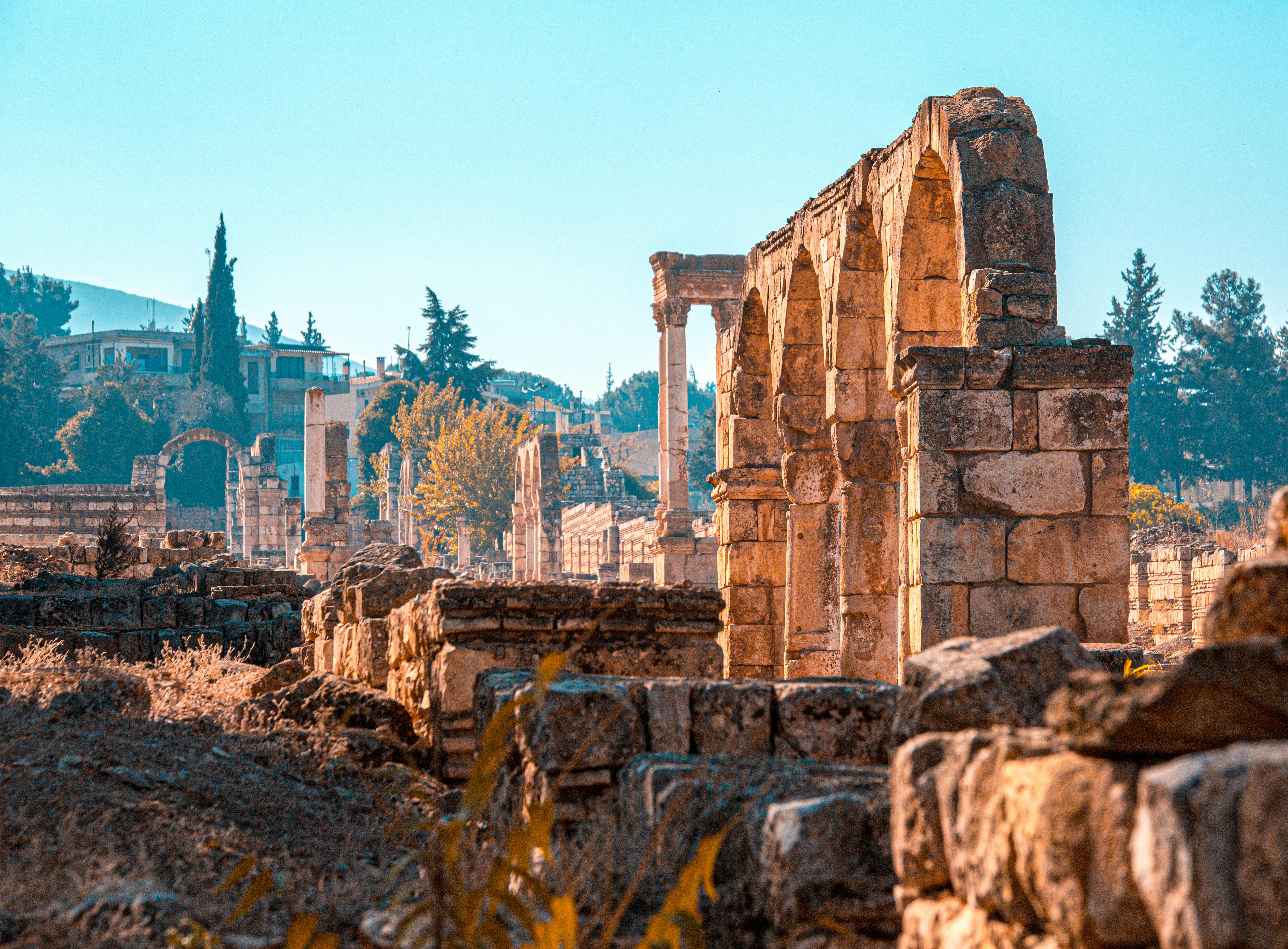
How to get there:
From Syria
- From Damascus, take a bus or taxi to the Syrian-Lebanese border (approximately 2-3 hours).
- Cross the border on foot and proceed to the Lebanese customs office.
- From there, take a taxi or bus to Beirut (around 1-2 hours).
From Jordan
- From Amman, take a bus from the Abdali Bus Station to the Jordanian-Syrian border (approximately 4-5 hours).
- Cross the border and take a taxi or bus to Beirut (around 2-3 hours).
- Alternatively, take a direct bus from Amman to Beirut with companies like National Transport Company (approximately 6-7 hours).
From Israel and Palestine
- From Tel Aviv or Jerusalem, take a bus or taxi to the Israeli-Lebanese border (approximately 2-3 hours).
- However, due to the lack of direct border crossings, you’ll need to transit through a third country, such as Jordan.
- From the Jordanian border, follow the instructions above.
From Turkey (via Syria or Jordan)
- Take a bus or flight from Istanbul to Damascus or Amman.
- From there, follow the above instructions.
When to go:
Spring (March to May)
- Weather: Mild temperatures (15-25°C/59-77°F), blooming flowers, and green landscapes.
- Events:
- Beirut Spring Festival (May)
- Eid al-Fitr celebrations (dates vary)
- Activities:
- Hike in the Qadisha Valley, Cedars of God, or Byblos
- Explore Beirut’s vibrant markets and street food scene
- Visit ancient ruins like Baalbek and Tyre
- Budget Tips:
- Accommodation prices drop after the winter rush
- Enjoy affordable outdoor activities like hiking and exploring
Summer (June to August)
- Weather: Hot and humid (25-35°C/77-95°F), Mediterranean beach vibes.
- Events:
- Beirut Summer Festival (June-July)
- Byblos International Festival (July-August)
- Eid al-Adha celebrations (dates vary)
- Activities:
- Relax on Beirut’s beaches (Ramlet al-Baida, Raouche)
- Explore Lebanon’s coastal towns (Byblos, Batroun, Sidon)
- Enjoy water sports and beach parties
- Budget Tips:
- Prices for accommodation and tourist services increase
- Look for affordable beachside hostels and guesthouses
Autumn (September to November)
- Weather: Comfortable temperatures (15-25°C/59-77°F), harvest season.
- Events:
- Beirut International Film Festival (October)
- Lebanese Independence Day (November 22nd)
- Activities:
- Visit wine country (Kefraya, Ksara, Faqra)
- Explore historic sites like Anjar and Baalbek
- Enjoy hiking and trekking in the cooler weather
- Budget Tips:
- Prices drop after the summer rush
- Take advantage of harvest season food and drink specials
Winter (December to February)
- Weather: Cool and rainy (10-15°C/50-59°F), snow in the mountains.
- Events:
- Beirut Winter Festival (December-January)
- Skiing and snowboarding in the Cedars, Faraya, or Zaarour
- Activities:
- Explore Beirut’s museums and indoor cultural attractions
- Visit historic sites like the National Museum and Beirut Souks
- Enjoy skiing, snowshoeing, or hot springs
- Budget Tips:
- Accommodation prices are generally lower
- Look for discounts on ski equipment rentals and lift tickets
Best Time for Broke Backpackers
Considering budget, weather, and activities, spring (April-May) and autumn (September-October) are ideal for broke backpacking in Lebanon. These periods offer:
- Mild weather
- Fewer tourists
- Lower prices
- A range of outdoor and cultural activities
Best Itineraries:
3-Day Itinerary: Beirut and Beyond
Day 1: Beirut
- Explore Beirut’s vibrant neighborhoods: Hamra, Gemmayzeh, and Mar Mikhael
- Visit the National Museum, Beirut Souks, and Martyrs’ Square
- Enjoy street food and drinks in the evening
Day 2: Byblos and Batroun
- Take a bus to Byblos (approx. $2)
- Explore Byblos’ ancient ruins, harbor, and medieval city
- Continue to Batroun, visit the seafront and old town
- Return to Beirut in the evening
Day 3: Baalbek and Jeita Grotto
- Take a bus to Baalbek (approx. $5)
- Visit the ancient Roman ruins of Baalbek
- Stop at Jeita Grotto on the way back to Beirut
- Enjoy a farewell dinner in Beirut’s trendy neighborhoods
1-Week Itinerary: Exploring Lebanon’s History and Nature
Day 1-2: Beirut
- Explore Beirut’s neighborhoods, museums, and cultural attractions
- Visit the American University of Beirut and its beautiful campus
Day 3-4: Byblos, Batroun, and Tripoli
- Take a bus to Byblos and explore its ancient ruins
- Continue to Batroun and visit its seafront and old town
- Visit Tripoli’s Crusader-era castle and old town
Day 5: Qadisha Valley and Cedars of God
- Take a bus to Bcharre and hike in the Qadisha Valley
- Visit the Cedars of God reserve
Day 6-7: Sidon and Tyre
- Take a bus to Sidon and explore its ancient ruins and seafront
- Continue to Tyre and visit its Roman ruins and beaches
2-Week Itinerary: Lebanon’s Coast, Mountains, and Culture
Day 1-3: Beirut and surrounding areas
- Explore Beirut’s neighborhoods, museums, and cultural attractions
- Visit Byblos, Batroun, and Jeita Grotto
Day 4-6: Tripoli and the North
- Visit Tripoli’s Crusader-era castle and old town
- Explore the Akkar region’s scenic coastline and villages
Day 7-9: Qadisha Valley and Cedars of God
- Hike in the Qadisha Valley and visit the Cedars of God reserve
- Explore Bcharre’s old town and literary attractions
Day 10-12: Sidon, Tyre, and the South
- Visit Sidon’s ancient ruins and seafront
- Explore Tyre’s Roman ruins and beaches
- Stop in coastal towns like Naqoura and Ras el-Matn
Day 13-14: Beirut and departure
- Return to Beirut and spend the last days exploring the city
- Depart from Beirut
1-Month Itinerary: The Ultimate Lebanon Adventure
This itinerary allows for a relaxed pace, exploring Lebanon’s hidden gems, and taking breaks in between.
Week 1: Beirut and surrounding areas
- Explore Beirut’s neighborhoods, museums, and cultural attractions
- Visit Byblos, Batroun, and Jeita Grotto
Week 2: Tripoli and the North
- Visit Tripoli’s Crusader-era castle and old town
- Explore the Akkar region’s scenic coastline and villages
Week 3: Qadisha Valley, Cedars of God, and the Mountains
- Hike in the Qadisha Valley and visit the Cedars of God reserve
- Explore Bcharre’s old town and literary attractions
Week 4: Sidon, Tyre, and the South
- Visit Sidon’s ancient ruins and seafront
- Explore Tyre’s Roman ruins and beaches
- Stop in coastal towns like Naqoura and Ras el-Matn
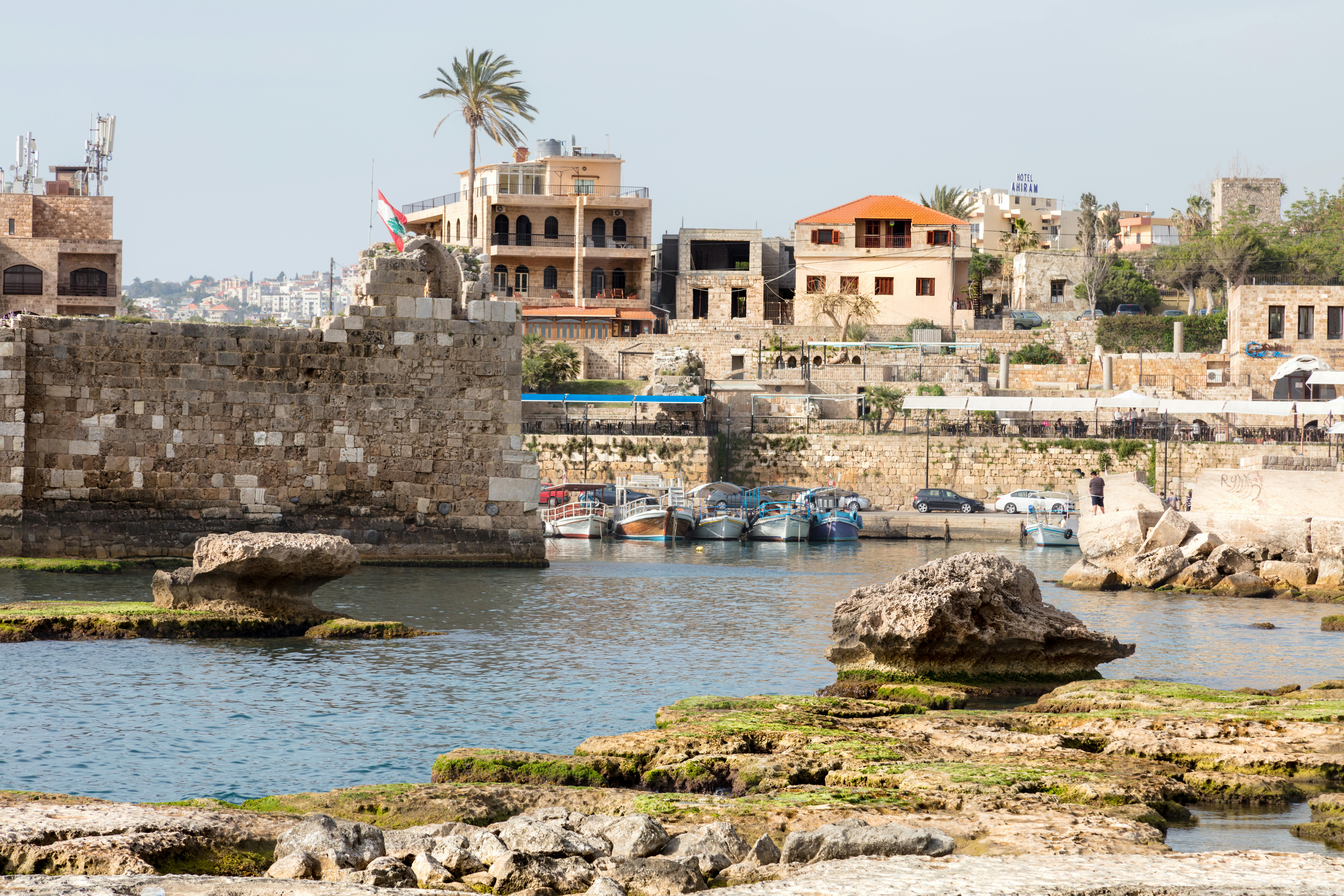
Transportation:
Lebanon’s public transportation system is an affordable and convenient way to explore the country. From bustling city buses to inter-city coaches and service taxis, understanding the network can help you navigate Lebanon like a local.
Types of Public Transportation
- City Buses: Connect major neighborhoods and suburbs in Beirut and other cities.
- Inter-City Coaches: Link cities and towns across Lebanon.
- Service Taxis: Shared taxis operating on fixed routes.
- Private Taxis: Hired for individual trips.
- Minivans: Small buses connecting rural areas.
City Bus Network
- Beirut:
- Lebanese Public Transportation (LPT) buses cover most neighborhoods.
- Fares: $0.50-$1.50.
- Other cities:
- Local bus networks operate in Tripoli, Sidon, and Tyre.
Inter-City Coaches
- Major routes:
- Beirut to Byblos, Batroun, Tripoli, Sidon, and Tyre.
- Fares: $2-$5.
- Operators:
- LPT
- Zouk Mosbeh Bus Station
- Tripoli’s El-Mallaha Bus Station
Service Taxis
- Shared taxis operate on fixed routes.
- Fares: $1-$3.
- Popular routes:
- Beirut to Byblos, Batroun, and Tripoli.
Private Taxis
- Hired for individual trips.
- Fares: negotiate before departure.
- Tip: use licensed taxis with meters.
Minivans
- Connect rural areas.
- Fares: $1-$2.
Key Bus Stations and Hubs
- Beirut:
- Charles Helou Bus Station
- Cola Bus Station
- Tripoli:
- El-Mallaha Bus Station
- Sidon:
- Sidon Bus Station
Mobile Apps and Resources
- Lebanese Public Transportation (LPT) app
- Zouk Mosbeh Bus Station app
- Tripoli’s El-Mallaha Bus Station app
Top things to do:
Beirut
- Visit the National Museum ($2)
- Explore the Beirut Souks (historic shopping district)
- Walk along the Corniche (waterfront promenade)
- Visit the Martyrs’ Square (historic landmark)
- Explore the trendy neighborhoods of:
- Hamra (shopping, dining, nightlife)
- Gemmayzeh (bars, clubs, live music)
- Mar Mikhael (art galleries, restaurants)
- Enjoy the nightlife in Beirut (bars, clubs, live music)
- Visit the:
- American University of Beirut (beautiful campus)
- Beirut Citadel (historic fortress)
- Sursock Museum (modern art)
- Mohammad Al-Amin Mosque (stunning architecture)
Mount Lebanon
- Hike in the Qadisha Valley (scenic hiking trails)
- Visit the Cedars of God reserve ($5, ancient cedar forest)
- Explore the picturesque towns of:
- Bcharre (hiking, scenic views)
- Deir el-Qamar (historic village)
- Beiteddine (historic palace)
- Enjoy skiing or snowboarding in:
- Cedars
- Faraya
- Zaarour
- Visit the:
- Gibran Museum (dedicated to Kahlil Gibran)
- Lebanese Heritage Museum (cultural exhibits)
North Lebanon
- Visit the ancient city of Byblos ($5, historic ruins)
- Explore the medieval city of Batroun (historic architecture)
- Visit the:
- Tripoli’s Crusader-era castle ($2, historic landmark)
- Tripoli’s Old City (historic architecture)
- Palm Islands Nature Reserve (scenic views)
- Enjoy the beaches in:
- Batroun
- Byblos
- Chekka
- Explore the Akkar region’s scenic coastline and villages
South Lebanon
- Visit the ancient city of Tyre ($5, historic ruins)
- Explore the Sidon’s ancient ruins and seafront
- Visit the:
- Beaufort Castle ($2, historic landmark)
- Sidon’s Sea Castle (historic fortress)
- Tyre’s Roman Hippodrome (historic landmark)
- Enjoy the beaches in:
- Tyre
- Sidon
- Naqoura
- Explore the scenic coastal towns of:
- Naqoura
- Ras el-Matn
Bekaa Valley
- Visit the ancient Roman ruins of Baalbek ($5)
- Explore the picturesque towns of:
- Zahlé (historic architecture)
- Chtaura (local markets)
- Visit the:
- Kefraya wine region (wine tastings)
- Chateau Kefraya (winery)
- Domaine des Tourelles (winery)
- Enjoy hiking and trekking in the Bekaa Valley
Other Destinations
- Qobbayat (hiking, scenic views)
- Tannourine (hiking, scenic views)
- Jbeil (historic village)
- Ammiq Wetland (birdwatching, scenic views)
Food:
Lebanese cuisine is a lively reflection of the rich cultural heritage of the country, mingling Mediterranean, Arab, and French influences into a unique and delicious culinary experience. From the hustle and bustle of Beirut’s city streets to the quiet countryside villages, food lies at the very heart of Lebanese life: it draws people together and feeds body and soul.
Food is sacrosanct in mealtimes in Lebanon, and sharing a meal is part of traditional Lebanese hospitality. Classic Lebanese cooking is all about the freshness of ingredients, aromatic spices, and cunningly combined textures and flavors. The liberal presence of olive oil, garlic, and lemon juice is to be found; tender meats, crisps of vegetables, and silky dairy keep on adding depth and dimension.
From the humble falafel-a crispy, flavorful patty of chickpeas in a warm pita with creamy tahini sauce, crunchy vegetables, and a sprinkle of sumac-to probably the most iconic dish in Lebanese cuisine, other popular street food includes shawarma. It is a thinly sliced meat served in a pita with tomato, onion, and a tangy sauce, usually lamb or chicken. Both are tasty, not expensive, and easy to find from street vendors and restaurants throughout the country.
But the Lebanese breakfasts are no less alluring, with dishes such as manaqish-a crispy flatbread served with a topping of olive oil, zaatar, and cheese. Foul is thick and hearty with fava beans, garlic, and lemon juice in its making. Knafeh is just one of those sweet delicacies that contain cheese and syrup, while baklava has acquired a classic reputation with its layers of flaky pastry and nutty filling.
Further from these familiar favorites, a wealth of exciting discoveries awaits in Lebanese cuisine. Tabouleh, a refreshing salad of parsley, tomatoes, and bulgur, is a summer staple, while kibbeh, a rich meatball made from ground meat and bulgur, acts as a comforting winter warmer. Grilled halloumi cheese, served with watermelon and mint, is a refreshing summer snack, and the renowned sweets of the country, like ma’amoul and ghuriba, are irresistible.
From the Bekaa Valley, Lebanon’s wine region produces several excellent wines such as Chateau Kefraya and Domaine des Tourelles. These are produced along with a huge amount of delicious Lebanese food that turns out even better in restaurants or family gatherings.
Food in Lebanon is not just about nourishment; it talks of hospitality, sharing companionship, and love. No visitor misses out on the eating together with the locals, street food markets, and traditional dishes that form a vital part of their tours. If you are a foodie or cultural enthusiast or just a curious traveler, then the gastronomical landscape of Lebanon will surely fascinate and inspire you.
From traditional eateries to modern fusion restaurants, restaurants, cafes, and street vendors across the country create one diversified gastronomic landscape. The hip districts of Beirut, including Gemmayzeh and Mar Mikhael, seem to be culinary hotspots, where inventive restaurants and bars serve everything from artisanal cocktails to gourmet burgers.
Family-run restaurants in the countryside, and many farm-to-table initiatives alike, show the fresh produce of the country. This includes artisanal cheeses and homemade preserves. A visit to a Lebanese home is a true unforgettable experience; meals are usually very lavish and lovingly prepared.
Lebanese food is steeped in the history and culture of the land. Grapes, olives, and other staple ingredients were all introduced by the ancient Phoenicians that once had inhabited the region. The influence of the Ottoman Empire is reflected in spices, the use of coffee, and sweets, whereas French colonialism introduced European techniques and ingredients.
Nowadays, as in the past, Lebanese cuisine is changing, becoming modern, and assuming new flavors, but never losing its roots. The vivacity of its food bears witness to the resilience, creativity, and hospitality of this country.
From the busy markets of Beirut to the nearly worldly villages of the countryside, the Lebanese foodscape is drama to the senses: from the fresh-baked bread that wafts its way out into the streets to the sizzling meats and lively chatter.
Every meal in Lebanon is a feast, every gathering an occasion to share delectable food and warm hospitality. Whether you enjoy a traditional Sunday lunch with your family, taste street food in Beirut, or take a peek at the hidden gastronomic nooks of the countryside, the food of Lebanon will be a lingering memory, full of the beauty with which this country endows it.
Food in Lebanon is also coupled with festivals and celebrations. For example, during Ramadan, the Islamic holy month of fast, traditional sweets and all types of desserts are prepared while Eid al-Fitr is marked with feasts and family gatherings.
Christmas and Easter are celebrated with traditional foods such as kibbeh, grape leaves stuffed with rice and meat, while Lebanese Independence Day is marked with traditional foods and folk music.
In Lebanon, food is a universal language, bridging cultural and social divides. Sharing meals with locals, learning traditional recipes, and exploring the country
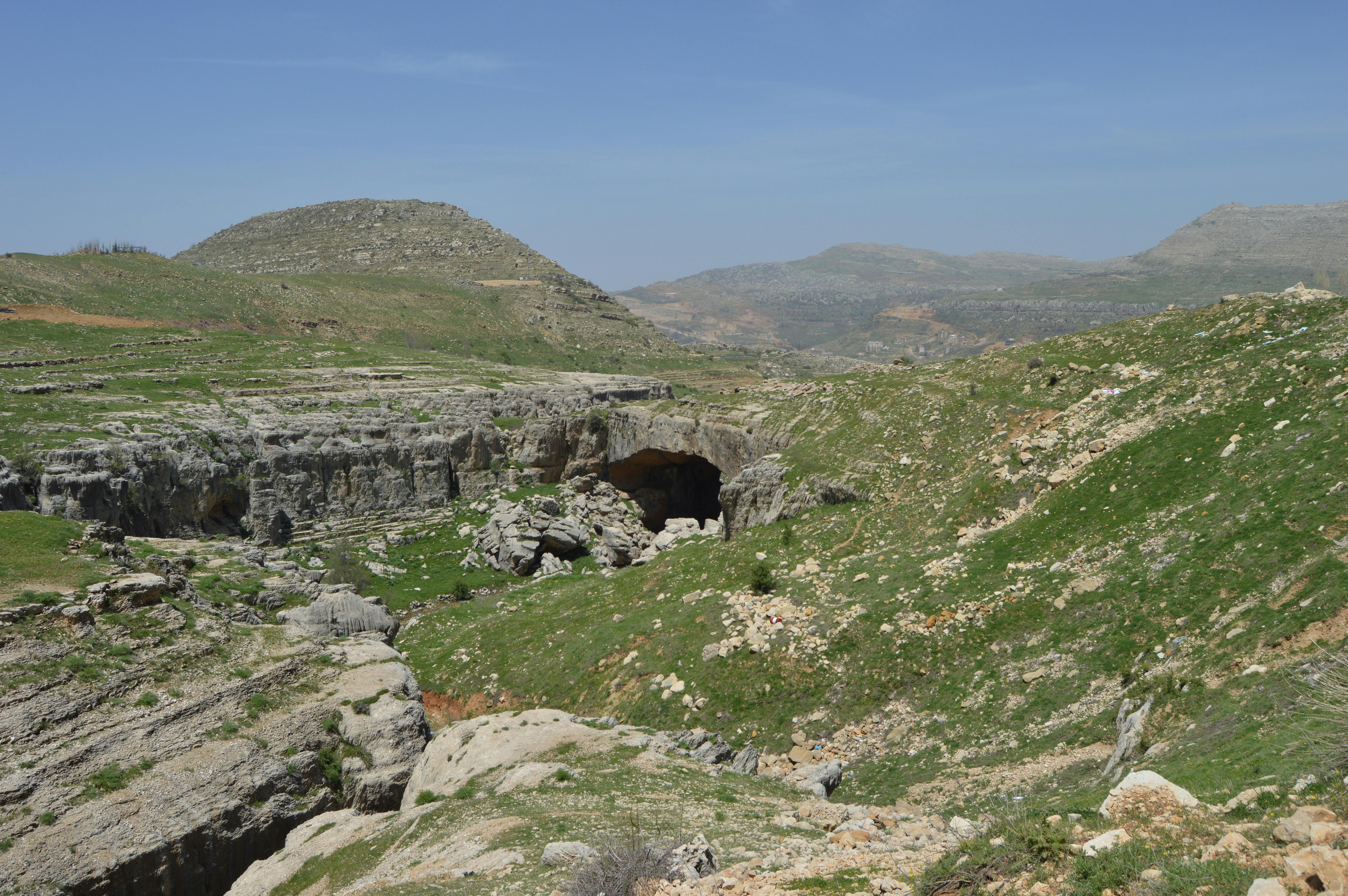
Culture:
Lebanese culture is an intensive and pluralistic tapestry of tradition, customs, and influences molded by this country’s privileged position at the meeting point between the Mediterranean, Europe, and the Middle East. The result of this melting pot has been one unique and durable people proud of their heritage and accomplishing a human desire to share it with the world.
The Lebanese culture hides in its marrow an ingrained spirit of hospitality since time immemorial, as travelers and traders crossed the country. The warmth in the smiles, open arms, and floods of food and drink just reiterate the Lebanese proverb that guests come from God. Lebanese hospitality does not apply only to kith and kin but is extended to complete strangers and foreigners.
The Lebanese also know something or two about the strength of family bonds; a close family is usually supposed to have daily feasts, celebrate various occasions together, and so on. There is strong respect for elders: grandparents and parents pass on traditions, stories, and attitudes to the next generation. This makes family gatherings even more unique, since they are sometimes filled with laughter, music, and dance to enhance those bonds between family members and make their communities even stronger.
The Lebanese culture is rich in language, even though the country is Arabic-speaking; yet French, English, and Armenian are spoken, too. This is indicative of the depth of its history: passing empires and civilizations swept over this part of the world often enough to leave their fingerprints of influence behind. The country’s geography further solidifies the language profile it adopts: Lebanese Arabic, for example, is quite far removed from standard Arabic.
Equally, the multi-denominational religious make-up of the country-Christians, Muslims, Druze, and others-places a delicate balancing act on this country of tolerance and mutual respect. This would well explain the wide range in festivals, traditions, and customs that each of the communities brings forth for the rich tapestry of this culture. Further, living together in harmony despite their many differences shows that the Lebanese people believe in coexistence and understanding as intrinsic to their country.
Lebanese art and architecture speak volumes of the country’s cultural heritage: from ancient ruins and Byzantine churches to mosques from the Ottoman Empire, all standing out among modern skyscrapers and sleek designer boutiques dotting the cities. The lively arts scene here is an expression of vibrant colors and detailed patterns, with avant-garde conglomeration of traditional and modern designs. From Byzantine churches with intricate mosaics to the large, modern installations of Lebanese artists, the artistic expression is as varied as the culture of the country.
Music and dance are deeply rooted in Lebanese culture. The folk dances of the nation, like dabke and zajal, are highly symbolic, expressing the joy of wedding celebrations, festivals, and special occasions. Traditional instruments, such as the oud, qraqeb, and ney, are often accompanied by modern electronic beats-a sign of the country’s readiness to adapt and change with the times. Lebanese music is an eclectic mix of Arabic, Mediterranean, and Western styles. The most popular artists, Fairouz and Umm Kulthum, are considered legends in the musical history of Lebanon.
Lebanese literature is an inexhaustible fount of poetry and narrative, greatly enriched by the works of Khalil Gibran, Amin Maalouf, and Elias Khoury, among others. The energetic literary landscape of this country is marked by bold experimentation, equality of linguistic innovation, and a probing into sensitive social and political issues. Lebanese literature very often explores themes such as identity, belonging, and social justice, reflecting the country’s complex history and rich cultural diversity.
Cinemas and theaters are also in good shape in Lebanon, where the country’s filmmakers and playwrights take up such thorny topics as identity, memory, and social justice. The annual film festivals and theater productions that take place in the country highlight the best of Lebanese and international talent, while attracting audiences from throughout the region. Lebanese cinema often explores themes of war, displacement, and social change, reflecting the country’s resilience and determination.
The Lebanese also closely identify themselves with the natural environment; sceneries of rugged mountains, coastlines, and valleys blossom into innumerable works of art, literature, and music. At the same time, the environmental movement is on the rise, so there are lots of initiatives undertaken in the field of preserving the country’s natural beauty, protection of its wildlife, and sustainable living. A love for nature also reflects in the traditional occupations of the Lebanese people: farming, hunting, and fishing.
But even in the face of war, displacement, and economic uncertainty, Lebanese culture remains resilient and vibrant-a reflection of the unyielding spirit and determination of this ancient country. This is due to cultural resilience, where the Lebanese people can easily adapt, innovate, and even thrive in conditions of adversity. What is spoken volumes about the bravery, creativity, and resolute people of this country in the expressions of its culture.
As a cultural destination, Lebanon seamlessly marries together tradition and modernity, warmth and hospitality, and creativity and innovation. Rich in cultural heritage, buzzing with vibrant cities, and offering legendary Lebanese welcomes, visitors can enjoy all this and more. From the ancient ruins of Baalbek to modern Beirut, Lebanon literally has it all.
Accommodations:
That’s why Lebanon offers the opportunity to the broke backpacker to share the pulsating rhythm of vibrant culture, rich heritage, and cozy hospitality without draining one’s bank account. But when it comes to accommodation, the cheapest often offer the most unforgettable experiences: forget fancy amenities and predictable surroundings; the real adventure starts with budget hostels in Lebanon.
So, taking a risk and booking the cheapest hostel may be kind of daunting, but believe it’s a risk worth taking. Many of these no-frills establishments are family-run, with owners who love nothing more than sharing culture and tradition with curious travelers. You could very well find yourself sharing rooms with locals, travelers, and the odd stray cat who happens to have taken residence in the hostel. It is infectious, and before long, you will find your stories traded, sharing meals, and generally belly-laughing with your new hostel family.
Most of the hostels in Lebanon, budget ones especially, are anything but sterile, cookie-cutter establishments. Here, decoration is an eclectic medley of hand-me-downs, thrift store finds, and DIY creations. Rooms may be small, but they are full of character-from the faded photographs hanging on the wall down to the patchwork quilts on the bed.
There may be a warm hug, a strong cup of Arabic coffee, or a plate of freshly baked manaqish awaiting your arrival. Legendary Lebanese hospitality extends to hostel owners taking great pride in treating guests like one of the family. You may find yourself invited to dinner or out on the town with the family.
The budget hostels in Lebanon are hotbeds of creativity and community, too. You could happen upon an impromptu jam session, an exhibition of artworks, or a poetry reading. Many travelers share their skills and talents, from yoga classes to language lessons. It’s really collaborative; the guests can work along with the owners to create an unforgettable atmosphere.
Yes, there are risks: You may have to suffer through the odd power cut, dodgy Wi-Fi, or eccentric plumbing. But these minor inconveniences pale in comparison to the rewards. In Lebanon’s budget hostels, the line between guest and host is blurred and you find yourself joining one big, fluid family bound by shared values.
For the truly adventurous, the budget hostels of Lebanon offer a chance to dive into the local culture. You can find yourself sleeping in a centuries-old Ottoman-era building, a monastery converted into a hostel, or a house that has been passed down within the family. Each one has its own unique story, and its owners are very proud to share it.
You may wake up to the sound of a muezzin’s call to prayer or go to bed with the melodious strains of Arabic music wafting through the windows. The scents of fresh bread baking, cardamom-laced coffee, and rosewater perfume fill the air, enveloping you in an aura of a world so different from your own.
In the budget hostels of Lebanon, the staff are often travelers themselves with stories to be heard and advice to offer. They’ll point you to the best local eateries, hidden gems, and off-the-beaten-path destinations. They’ll introduce you to fellow travelers, and before long, you’ll be planning group trips to Baalbek’s ancient ruins or scenic valleys in the Qadisha.
But budget hostels in Lebanon are so much more than a place to lay your head; they’re the doors to lifetime experiences, lasting friendships, and further comprehension of this amazing country. Come armed with an open mind, a sense of humor, and a will to take the roads least traveled. Make that extremely cheap hostel booking now, and here comes your lifetime experience.
Meandering through the narrow streets of Beirut, Tripoli, or Sidon, every so often you will discover hostels hiding from the eyes in an old building, family homestead, or converted warehouse. Each one of them is a treasure trove of stories, secrets, and surprises just waiting to be unearthed.
From the blurred lines of guest and host, traveler and local, the budget hostels in Lebanon turn you into a part of the vibrant tapestry of cultures, traditions, and experiences. You will leave, upon your return, with much more amazement at the resilience, hospitality, and ingenuity of the Lebanese.
Ditch the guidebook, ignore the reviews, and take a chance on the unknown. The budget hostels of Lebanon are all about the journey, not the destination. It’s about absorbing that raw, vibrant energy of this quite incredible country.
After all, it is not about the amenities, Wi-Fi, or the thread count; it’s about the people, experiences, and memories. Budget hostels in Lebanon have the chance to connect with the heartbeat of this magnificent country. Come, explore, and discover for yourself the magic of budget hostels in Lebanon.
Nightlife:
The nightlife in Lebanon is an embroidered tapestry of sound and color, rich in the cultural heritage of the country, in Mediterranean flavour, and in that infectious joie de vivre. From busy downtown streets to picturesque coastal towns, Lebanon transforms into this pulsating dynamic entity at night, beckoning travellers and locals alike.
As the sun sinks into the Mediterranean, Lebanon’s cities spring to life in a cacophony of sound that effortlessly mingles the timeless with the modern. The air vibrates with the rhythms of Arabic music-from classic crooners like Fairouz to fusion bands of today. The scent of hookah smoke and just-brewed coffee wafts through the air, tempting people on the street to stop and linger awhile.
Nights in Lebanon are truly about the cultural diversity: East meets West, old and new blend as one. You might find yourself on a rooftop bar overlooking the Beirut skyline, DJs mixing electronic beats with Arabic melodies. Or you could be in a cozy little pub, sipping craft beer while listening to live folk music.
This legendary Lebanese hospitality well extends into the wee hours of the morning as warm smiles and open arms welcome strangers into the fold. Be alone or part of a group, in no time you’ll be swept by the infectious energy of Lebanon’s nightlife. Strangers turn into fast friends over shared plates of meze, impromptu dance parties erupt on crowded dance floors.
The nightlife in Lebanon is creatively brilliant because local artists, musicians, and performers reveal their talents, either in cozy ivory towers or sprawling festivals. Avant-garde theatre performances, underground music events-new things and fresh happenings are being invented.
Old and new blend together at night in Lebanon. Ancient buildings house trendy bars and clubs while modern architecture forms the sleek background for rooftop lounges and beachside parties. The natural beauty of the country-from rugged mountains to scenic coastlines-will provide a breathtaking backdrop for many outdoor events and festivals.
Nightlife also hugely intersects with food and drink culture in Lebanon, where there will be delicacies well into the night such as shawarma, falafel, and manaqish. Equally fuelling revelry are the local wines, craft beers, and Arabic coffee, while sweet treats-especially baklava and knafeh-satisfy late-night munchies.
But for all the hype over revelry, Lebanon’s nightlife offers something to more laid-back pursuits. From cozy cafes to quiet lounges, great places to sit with friends over a cup of coffee or quietly having drinks abound.
It indeed reflects the resilience, creativity, and joie de vivre of Lebanon’s people. In a country that has lived through many ordeals, the nightlife scene is one of hope, unity, and celebration. Whether you enjoy partying or are just out for a novelty experience, the nightlife in Lebanon will give you your desired dose of magic, energy, and yearning for more.
As night falls, cities across Lebanon really come alive, pulsating with energy, each quarter something new waiting to be had. From Gemmayzeh’s hipster bars, passing through the seaside promenade of Batroun, every bend in Lebanon brings up something new: something different to see, someone different to meet, and something different to do.
In Lebanon, the night is the journey, not the destination. It’s bonding time, a time of discovery, and a form of expression. Nightlife here is a testimony to how Lebanese people show their ability to find joy in small things, make beautiful things out of adversity, and make strangers welcomed.
From sound to color to flavor, Lebanon’s nightlife is an odyssey that will leave you short of breath and asking for more. Come and indulge in this pulsating world of vibrancy that Lebanon’s nightlife has in store-so every night is a celebration and every moment a memory just waiting to be made.
Through the nocturnal playgrounds of Lebanon, you run into a colorful category of characters with story after story to share. In Beirut, a charismatic bartender at the bar will regale you with tales of Beirut’s golden age, or an enigmatic musician might be weaved into hypnotic melodies. Each encounter is an opportunity to relate, learn, and grow.
Nights in Lebanon are a mirror to its soul, reflecting all the country’s complexities, contradictions, and passions. It is a world where ancient traditions meet with modern innovation, where East meets West, and where the past, present, and future fuse together with fluid ease.
In Lebanon, night is a time for dreams, possibilities, and connections. Night is the time of release from inhibitions, embracing the unknown, and surrender to the rhythm of the moment. Whatever you could be, be it a tourist, an artist, or at least someone in search of novelty, the nightlife here in Lebanon will transform, inspire, and change you forever.
Backpacking Lebanon costs:
Daily Budget: $10-25
- Accommodation: $5-10 (dormitory or shared room in a budget hostel)
- Food: $3-8 (street food, falafel, shawarma, and hummus)
- Transportation: $1-3 (public transportation, walking, or hitchhiking)
- Attractions: $1-5 (free walking tours, visiting mosques, and exploring markets)
- Miscellaneous: $1-5 (snacks, drinks, and unexpected expenses)
Weekly Budget: $70-175
- Accommodation: $35-70 (avg. $5-10 per night)
- Food: $21-56 (avg. $3-8 per day)
- Transportation: $7-21 (avg. $1-3 per day)
- Attractions: $7-35 (avg. $1-5 per day)
- Miscellaneous: $7-35 (avg. $1-5 per day)
Tips for saving money:
- Stay in budget hostels or guesthouses.
- Eat street food or cook your own meals.
- Use public transportation or walk/hitchhike.
- Visit free attractions or join free walking tours.
- Avoid expensive tourist areas.
- Bargain at markets and shops.
- Use cash instead of credit cards.
- Share accommodations and transportation with fellow travelers.
Budget-friendly food options:
- Falafel or shawarma from street vendors ($1-2)
- Hummus and tabbouleh from local restaurants ($3-5)
- Fresh fruit and vegetables from markets ($0.50-1)
Budget-friendly transportation:
- Public buses (25 cents-50 cents)
- Service taxis (1-2 dollars)
- Hitchhiking (free)
Budget-friendly attractions:
- Free walking tours in Beirut and Tripoli
- Visit mosques and churches (free or donation-based)
- Explore markets and souks (free)
Conclusion:
But it hit me, broke backpacking around Lebanon, that the beauty of travel has nothing to do with living it up or luxury; it has to do with embracing the unknown, immersing one into local culture, and finding beauty in the most unsuspecting moments.
With its boundless history, gorgeous landscapes, and warm hospitality, there is very little that might leave the most hardened of budget travelers cold. From the animated streets of Beirut to the ancient ruins of Baalbek, every nook and corner offers a different experience to be unfolded.
Broke backpacking in Lebanon involves flexibility, creativity, and a readiness to take risks. That means embracing the unforeseen, being surrendered to the unknown, and finding one’s delight in the unlikeliest of places. But the rewards are immeasurable-from impromptu invitations to share meals with locals to stumbling upon hidden gems tucked away in ancient alleyways.
The landscape of Lebanon is quite budget-friendly, showing the resilience and resourcefulness of its people. Despite all the challenges, it remains a beacon of hope, unity, and celebration. As a broke backpacker, you’ll find yourself getting wrapped up in this infectious energy, forging unforgettable connections with fellow travelers and locals alike.
In Lebanon, the journey is indeed the destination. It will be a country that will change your assumptions, push you out of your comfort zone, and leave you changed forever. So, come with an open heart, a willingness to adapt, and the passion to discover.
For the bold and the few who dare, Lebanon has a lifetime of travel in store that will leave you with memories, stories to tell, and a deeper insight into this amazing country and its people. So pack light, keep your curiosity ardent, and take the leap of a lifetime in this enigmatic country.
